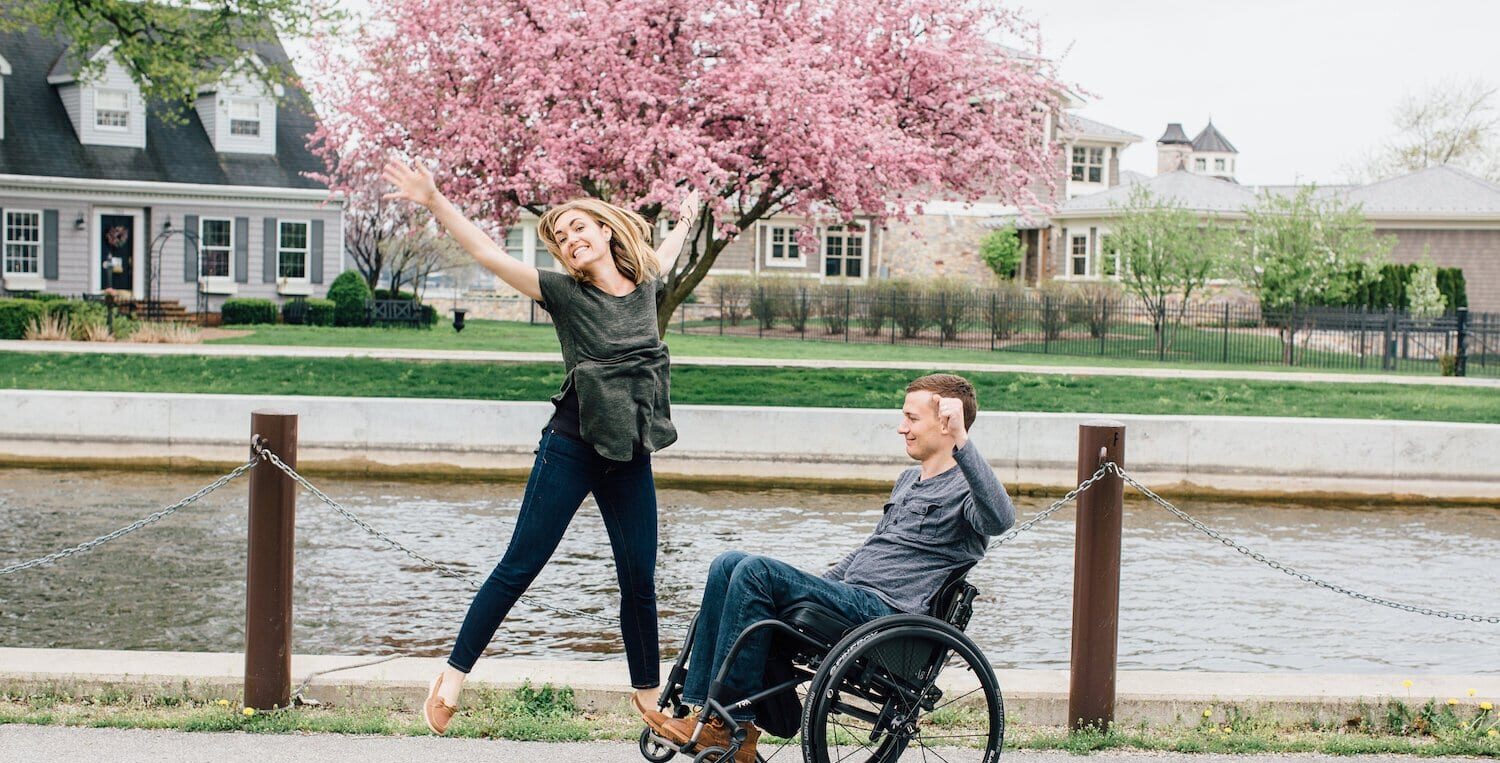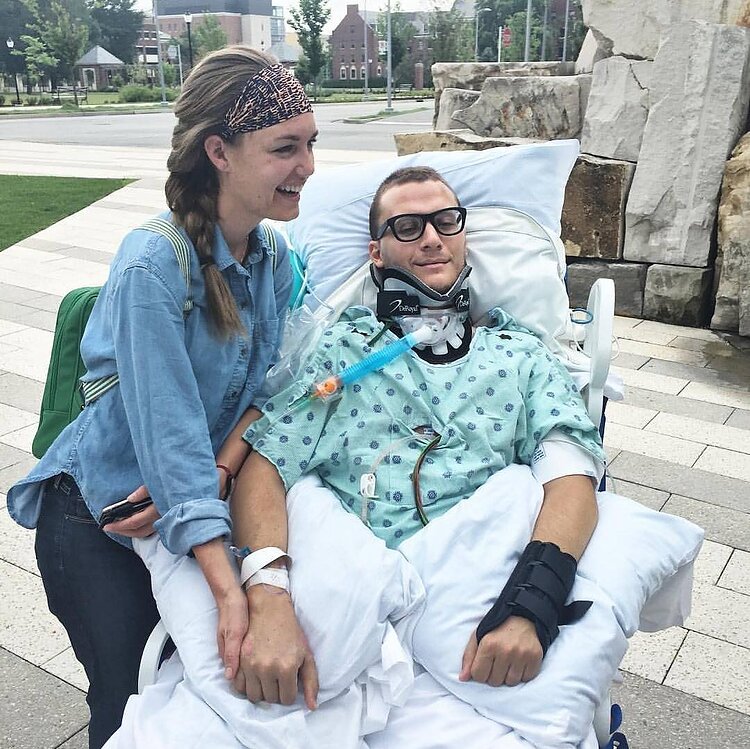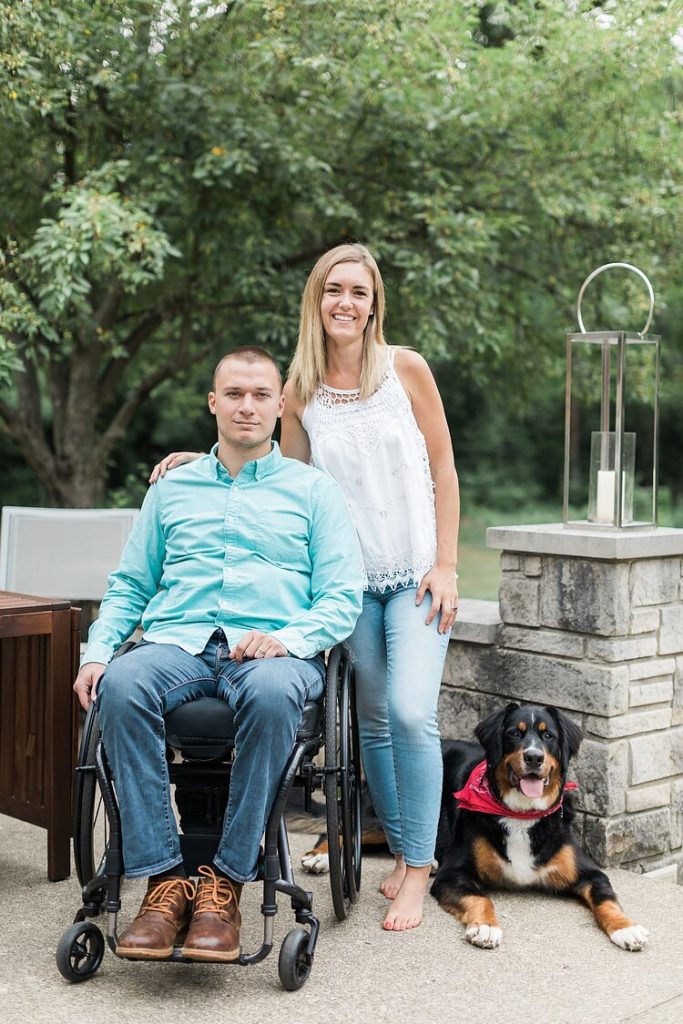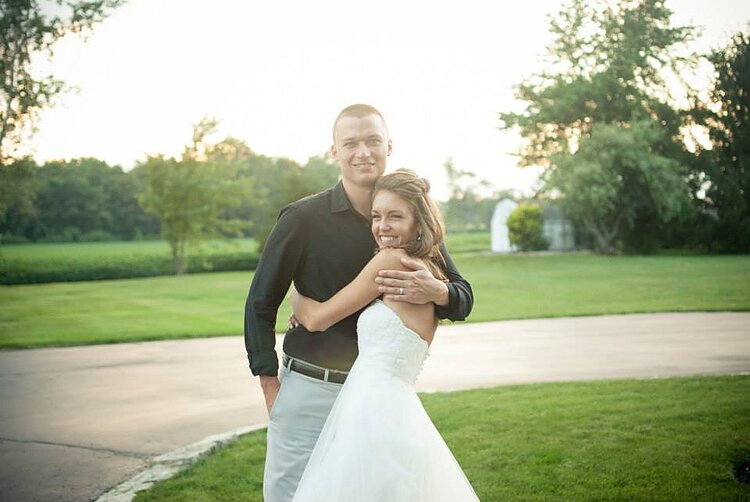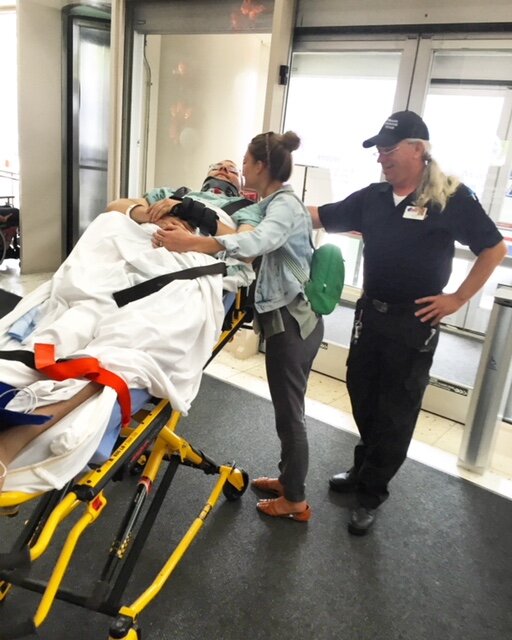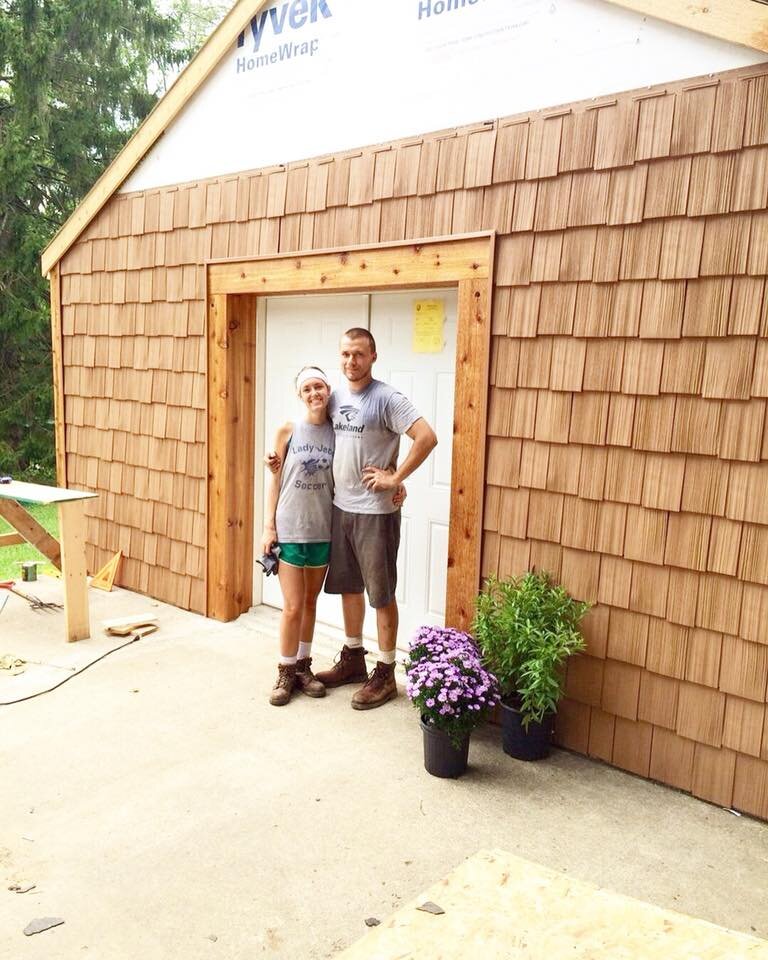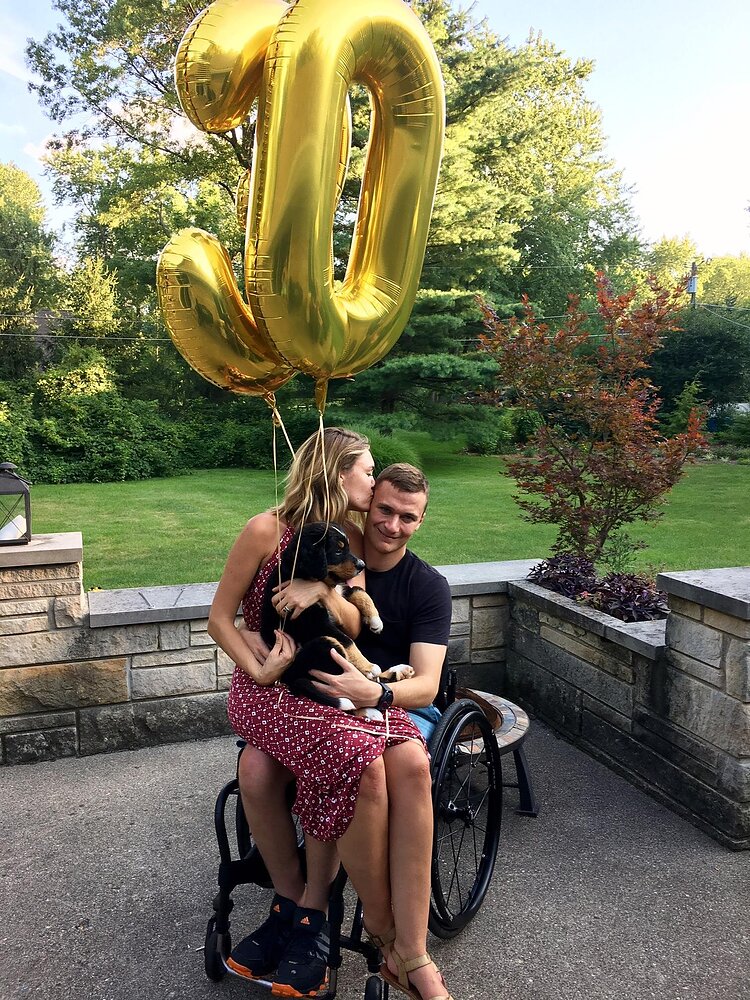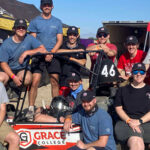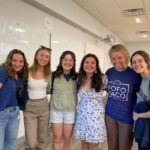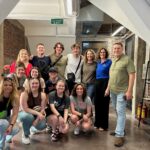IFW: What was life like for you those three months in rehab?
LL: A lot of it was soaking up all the information I could about Derek’s safety and health. Our house was not accessible at all, so we also needed to find a new place to live.
Through it all, I gained a really deep trust in God. Keeping the mindset of “This isn’t happening to us, it’s happening for us,” has helped us stay out of the victim mentality. We knew some good would come out of our pain.
IFW: How is Derek doing now?
LL: He’s doing great! He’s completely independent and was back to work within a year.
Derek is a very determined person, and I am really proud of how hard he has worked to regain normalcy.
IFW: Tell us about your career in fundraising that came out of the motorcycle accident.
LL: In September, when we were still in rehab, MudLOVE held a fundraiser for us using their mugs and clay bands. A few months later, I was starting to consider working again when Luke, the owner, reached out and asked if I would be interested in helping them create an online fundraising platform.
I was ecstatic to be using our personal experience to help other families. This turned into LoveWell Fundraising which is a free fundraising platform using MudLOVE bands.
IFW: How have you seen others affected by LoveWell Fundraising?
LL: We’ve worked with families who are experiencing emergency medical bills, adoptions, mission trips, a variety of nonprofits, and more. The beauty of fundraisers is how encouraging they can be when you see your family and friends rallying behind you.
IFW: Can you tell us about your dream of designing homes for accessibility?
LL: When we moved back to Indianapolis, we bought a ranch that needed some accessible renovations. During the process, I really fell in love with the idea of helping those with disabilities feel comfortable in their own home. I’ve had a few clients in the past couple of years, but would love to eventually expand Lavender Accessible Design to help more families.

